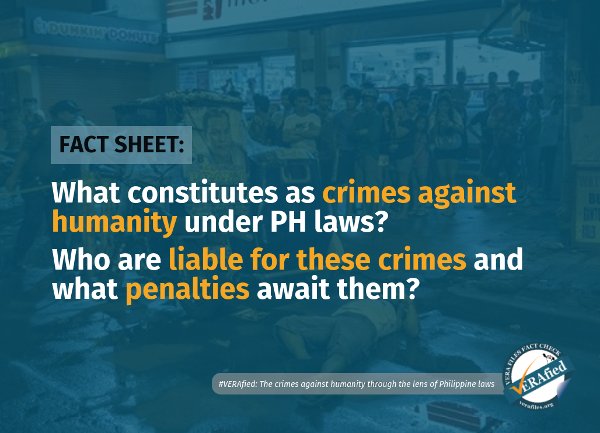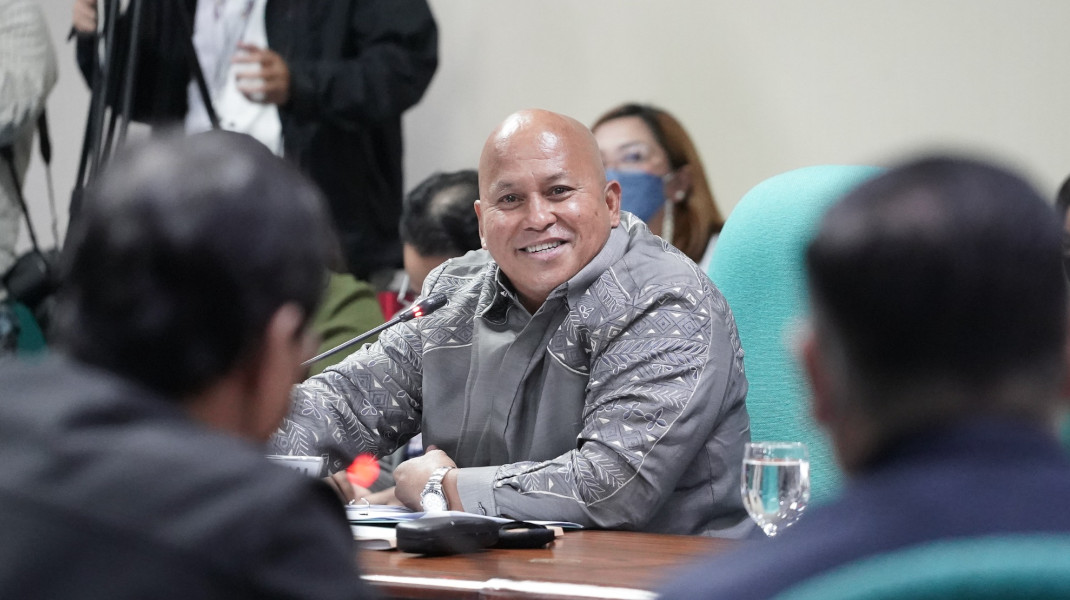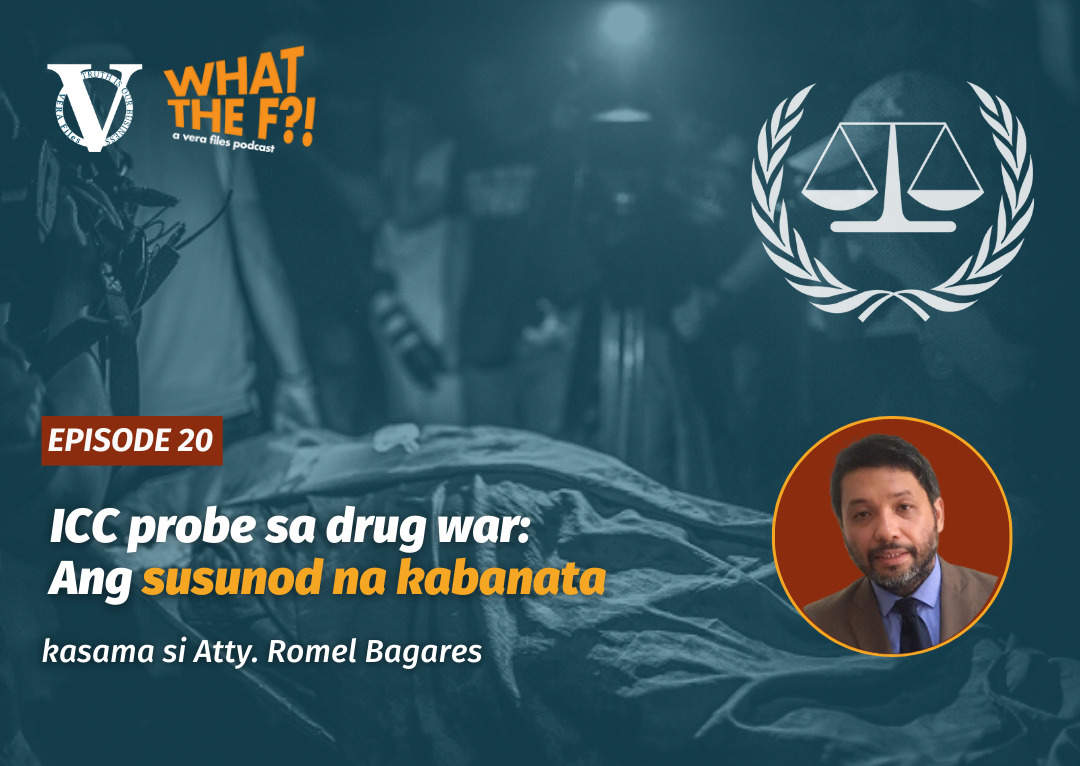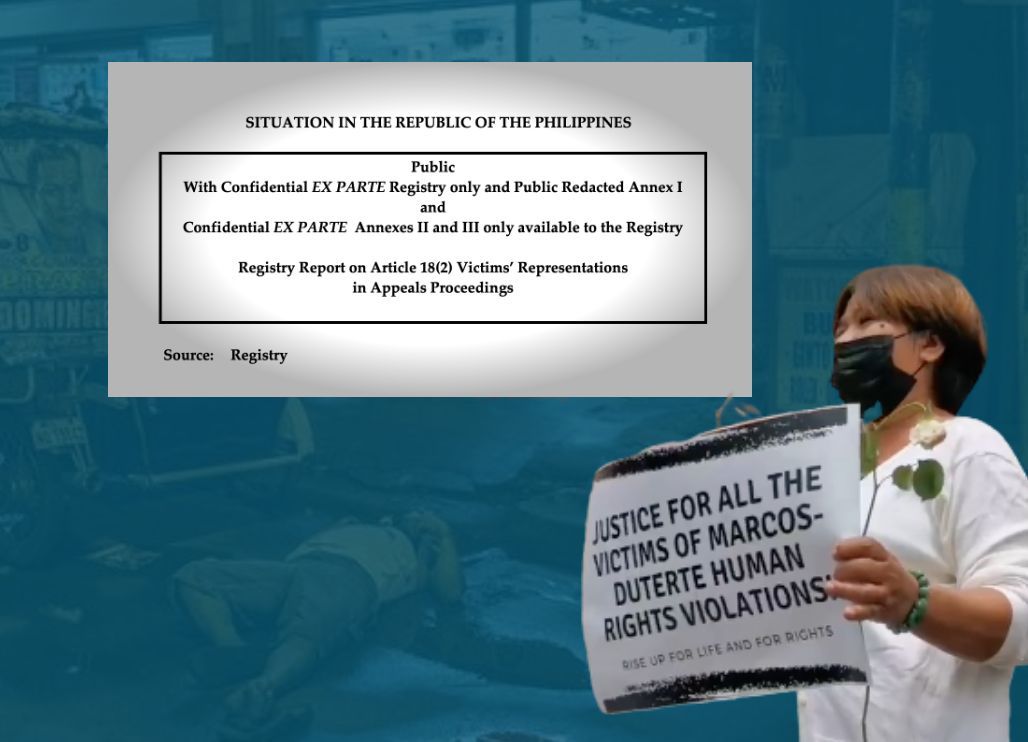When Karim Khan assumes the position of chief prosecutor of the International Criminal Court (ICC) in June, he faces the possibility of investigating alleged crimes against humanity committed in the Philippines’ campaign against illegal drugs.
The Assembly of States Parties to the Rome Statute elected Khan as its next prosecutor, replacing Fatou Bensouda, during its 19th session in New York City on Feb. 12.
When Bensouda ends her nine-year term as chief prosecutor on June 15, her office should have already concluded its preliminary examination of alleged crimes against humanity committed under President Rodrigo Duterte’s bloody “war on drugs.” Among the possible recommendations of her office to the ICC would be the launching of a formal investigation of those crimes.
The decision was expected last December, but due to the coronavirus disease 2019 (COVID-19) pandemic and “capacity constraints,” Bensouda’s office said it “anticipates” arriving at a decision on whether to seek the ICC authorization to “open an investigation into the situation in the Philippines in the first half of 2021.” (See VERA FILES FACT SHEET: Understanding the updates on the ICC’s preliminary examination into Duterte’s drug war)
Bensouda’s office has been looking at alleged crimes against humanity in the country since February 2018, almost a month before Duterte ordered the Philippines’ withdrawal as a state party to the Rome Statute, which established the ICC. The examination covered alleged crimes committed from July 1, 2016 to March 16, 2019 in connection with Duterte’s campaign against illegal drugs.
In its report last December, the prosecutor’s office said it was “satisfied” that available information gave it “reasonable basis to believe” that crimes against humanity, such as murder, torture, and the infliction of serious physical injury and mental harm, were committed in the Philippines during the period under examination in connection with the drug war launched across the country.
The preliminary examination was just the beginning of at least six legal procedures followed by the ICC before coming out with a conviction or acquittal of someone accused of committing crimes that fall under its jurisdiction.
Various rights and civic groups, such as the National Union of People’s Lawyers (NUPL), as well as public personalities, including former senator Antonio Trillanes IV, have filed communications to the ICC detailing acts that may constitute crimes against humanity committed by Duterte and his alleged conduit officials who led and supported the drug war since he became president in July 2016.
Domestic remedies, however, have been available to hold officials accountable for committed crimes against humanity even before the Philippines ratified the Rome Statute and became a state party to the ICC in 2011. (See VERA FILES FACT CHECK: Duterte says PH was ‘not ever’ a member of the ICC. Is that so?)
Republic Act (RA) 9851, or the Philippine Act on Crimes Against International Humanitarian Law, Genocide, and Other Crimes Against Humanity, was enacted in December 2009. It provides the grounds for the filing of charges and sanctions, and designated the courts that will litigate the cases filed against perpetrators.
Here are four things you need to know about RA 9851:
1. What specific acts are criminalized under the law?
RA 9851 prohibits any acts of crimes against humanity that are “committed as part of a widespread or systematic attack” — such as willful killing, extermination, and torture — against any civilian.
It punishes genocide and war crimes in accordance with international humanitarian laws and treaties, such as the 1948 Genocide Convention and 1949 Geneva Conventions. Genocide constitutes acts that are meant to “destroy” in whole or in part a particular group such as ethnic minorities by killing or hurting them, among others. War crimes refer to excessive warfare methods committed during international or non-international armed conflicts.
In an online interview with VERA Files on Jan. 11, lawyer Ruben Carranza, senior expert on war crime tribunals and reparations for the New York-based International Center for Transitional Justice (ICTJ), said RA 9851 “copied” the provisions regarding crimes against humanity from the Rome Statute. A review of the Rome Statute showed the definition and grounds for crimes against humanity were similarly worded as the provisions in RA 9851.
Carranza noted that Duterte’s spokesperson, Harry Roque, even lobbied for the passage of bills in Congress that later became RA 9851, and moved to amend certain provisions of the law to make the Philippines fully compliant with the Rome Statute and the ICC when he became a party-list representative in 2016.
In a 2011 lecture on the legal nuances of ratifying the Rome Statute, Roque, then a human rights lawyer and law professor, championed the country’s ratification as “a step in the right direction to end impunity in the Philippines and the rest of the world.”
Roque, the only Filipino lawyer accredited to serve as counsel for defendants and victims of international crimes before the ICC based on the court’s counsel registry as of 2020, supported and defended Duterte’s order to have the Philippines withdrawn from the Rome Statute.
2. Who may be held liable for violating provisions of RA 9851?
Any individual, including government officials and foreign nationals, found to have violated any of the provisions of RA 9851, may be charged and prosecuted before the Regional Trial Courts (RTC) — which, under Section 18 of the law, “have original and exclusive jurisdiction” over all relevant cases — or “special courts” designated by the Supreme Court (SC).
While the law affirms the individual criminal responsibility of an accused, it also incriminates a public official on the basis of command responsibility for failure to prevent one’s subordinates from committing violative actions under RA 9851, or submitting the matter to competent authorities for investigation and prosecution.
The law states that courts “shall be guided” by relevant international conventions, treaties, laws, and judicial decisions of international courts and tribunals in interpreting its provisions.
Under Section 17, local authorities may “dispense” or stop the investigation or prosecution if another court or international tribunal is already investigating or prosecuting an individual for a similar offense “in the interest of justice.”
In such cases, local authorities “may surrender or extradite” suspected or accused persons to the “appropriate international court, if any, or to another State pursuant to the applicable extradition laws and treaties.”
3. What penalties may be imposed on persons who violate the law?
Persons found guilty of committing crimes against humanity, war crimes, or genocide face penalties ranging from a fine of P100,000 to P500,000 and imprisonment of at least 14 years, eight months and a day up to 20 years. The assets, property, and proceeds directly or indirectly obtained during the commission of the violations will also be forfeited.
Local courts may impose heavier sanctions, specifically reclusion perpetua (maximum of 30 years imprisonment) and fine of up to P1 million “when justified by the extreme gravity of the crime,” especially if the crimes constitute rape, or have resulted in death or serious physical injury, and depending on the “individual circumstances” of the accused. Public officials may also face additional accessory penalties under the Revised Penal Code.
Persons found guilty of inciting others to commit genocide will suffer imprisonment ranging from six years and one day to 12 years, and a fine of P10,000 up to P20,000.
Under RA 9851, victims are entitled to reparations for the damages or losses incurred by their perpetrators based on the assessment of the court.
4. Can an incumbent president be held liable under RA 9851?
While Section 9 of RA 9851 indicates the “irrelevance” of position in government of the accused from prosecution, or reduction of sentence, the sitting president cannot be prosecuted for violating any provision of the law, including crimes against humanity, until his or her tenure ends:
“Immunities or special procedural rules that may be attached to the official capacity of a person under Philippine law other than the established constitutional immunity from suit of the Philippine President during his/her tenure, shall not bar the court from exercising its jurisdiction over such a person…”
Source: Official Gazette, Republic Act 9851, Dec. 11, 2009
Although the 1987 Philippine Constitution does not have an explicit provision regarding presidential immunity, unlike in the 1973 Constitution, various jurisprudence still recognize the privilege from criminal or civil suits of an incumbent president.
In a 2011 ruling, the SC explained that granting immunity to the president “is important [so] that he be freed from any form of harassment, hindrance or distraction to enable him to fully attend to the performance of his official duties and functions.”
The decision, which pertains to three petitions against military and government officials allegedly involved in the abduction of two missing students of the University of the Philippines in 2006, added that dragging the president to court litigations “impairs his usefulness in the discharge” of his constitutional duties. Former president Gloria Macapagal-Arroyo, who was among the personalities named by the petitioners, was dropped as a respondent owing to her presidential immunity that time.
However, the immunity from suits of a sitting Philippine president does not apply when it comes to the ICC, which has jurisdiction over international crimes such as crimes against humanity. Carranza said the Hague-based court does not acknowledge immunities from suits of a head of state. (See VERA FILES FACT CHECK: ICC can strip off Duterte’s immunity)
Article 27 of the Rome Statute, which Roque, in a 2012 article, recognized as “adopted verbatim” under Section 9 of RA 9851, provides that immunities or special procedural rules under national or international law accorded to any government official, including the heads of state or government, will not bar the ICC from exercising its jurisdiction.
In at least two cases, the ICC wanted to put two sitting heads of states on trial when it issued arrest warrants against former Sudanese president Omar Al Bashir and the late Libyan leader Muammar Gaddafi.
According to the ICC, Al Bashir was the first sitting president to be wanted by the ICC for various charges, including two counts of crimes against humanity and five counts of war crimes, that occurred in Darfur, Sudan. However, Al Bashir has yet to be tried before the ICC because he is still at large despite two arrest warrants issued against him. Meanwhile, the two crimes against humanity cases against Gaddafi were terminated following his death in 2011.
Neither Sudan nor Libya became a state party or ratified the Rome Statute. But the Rome Statute allows the ICC to launch an investigation of erring officials of the two countries since their cases were referred by the United Nations Security Council.
While the Philippines has left the ICC, Bensouda has maintained that all crimes that occurred in the country during the period of its membership to the statute from November 2011 to March 2019, when the country’s withdrawal officially took effect, still fall under the jurisdiction of the court. (See VERA FILES FACT CHECK: Panelo makes wrong, misleading claims on ICC jurisdiction, basis of drug war probe)
The ICC’s preliminary examination on Duterte’s anti-drug campaign
At present, Bensouda has yet to come out with a conclusion of the preliminary examination into the rights violations under Duterte’s drug war since the process began in 2018. Articles 15 and 53 of the Rome Statute state that in order for the prosecutor to proceed to an investigation, she must establish first the jurisdiction of the court over alleged crimes that occurred and assess the gravity, complementarity, and the interests of justice in the situation.
If Bensouda is able to establish basis, she must secure an authorization from the ICC Pre-Trial Chamber to launch the investigation and request the issuance of summons or arrest warrants against suspected Philippine officials to appear before the court.
Here is an updated timeline of events that occurred before and during the preliminary examination of Bensouda, which she is expected to wrap up before she ends her term on June 15:
(See PH gov’t inaction on 5,000 deaths related to drug war bolsters case vs Duterte in ICC, lawyer says)
Erratum: The first version of this article identified Gaddafi as Syrian instead of Libyan. We apologize for the mistake.
Sources
International Criminal Court, Curriculum vitae – Karim Khan, Accessed Feb. 18, 2021
International Criminal Court, Assembly of States Parties concludes the second resumption of its nineteenth session, Feb.12, 2021
International Criminal Court, Who’s who, Accessed Feb. 18, 2021
Official Gazette, Republic Act No. 9851
United Nations, Convention on the Prevention and Punishment of the Crime of Genocide, Accessed Feb. 18, 2021
United Nations, IV GENEVA CONVENTION RELATIVE TO THE PROTECTION OF CIVILIAN PERSONS IN TIME OF WAR OF 12 AUGUST 1949 PART I General Provisions A, Accessed Feb. 18, 2021
United Nations Office of the High Commissioner for Human rights, Protection of Civilian Persons in Time of War, Accessed Feb. 18, 2021
Interview with Ruben Carranza, Jan. 11, 2021
International Center for Transitional Justice, Ruben Carranza | International Center for Transitional Justice, Accessed Feb. 18, 2021
International Criminal Court, Rome Statute
ICC Office of the Prosecutor annual report
- International Criminal Court, Report on Preliminary Examination Activities (2018), Dec. 5, 2018
- International Criminal Court, Report on Preliminary Examination Activities (2019), Dec. 5, 2019
- International Criminal Court, Report on Preliminary Examination Activities (2020), Dec. 14, 2020
Archive.org, ICC at long last by Harry Roque, Accessed Feb. 18, 2021
Congress bills of Roque
- House of Representatives website, House Bill 2834 (17th Congress), Aug. 10, 2016
- House of Representatives website, House Bill 222 (17TH Congress), June 30, 2016
Philippine Judicial Academy, Journal volume 14, issue no. 38, 2012
International Criminal Court, Registry (page 610-700), Accessed Feb. 18, 2021
RTVMalacanang, Press Briefing 3/15/2018, March 15, 2018
Official Gazette, Act No. 3815, s. 1930, Dec. 18, 1930
Official Gazette, The Constitution of the Republic of the Philippines (1987), 1987
Official Gazette, 1973 Constitution of the Republic of the Philippines, 1973
Supreme Court, G.R. Nos. 184461-62, May 31, 2011
International Criminal Court, Situation in Darfur, Sudan, Accessed Feb. 18, 2021
International Criminal Court, Al Bashir Case, Accessed Feb. 18, 2021
International Criminal Court, Gaddafi Case, Accessed Feb. 18, 2021
United Nations, Rome Statute, Accessed Feb. 18, 2021
Sources for the timeline
International Criminal Court, Statement of the Prosecutor of the International Criminal Court, Fatou Bensouda concerning the situation in the Republic of the Philippines, Oct. 13, 2016
Senate of the Philippines, Trillanes, Magdalo charge Duterte at ICC, June 6, 2017
International Criminal Court, Statement of the Prosecutor of the International Criminal Court, Fatou Bensouda, on opening Preliminary Examinations into the situations in the Philippines and in Venezuela, Feb. 8, 2018
Department of Foreign Affairs, PH Officially Serves Notice to UN of Decision to Withdraw from ICC, March 16, 2018
International Criminal Court, ICC Statement on The Philippines’ notice of withdrawal: State participation in Rome Statute system essential to international rule of law, March 20, 2018
Senate of the Philippines, Supreme Court asked to allow de Lima to argue on Rome Statute case, July 26, 2018
Philippine Coalition for the International Criminal Court, PCICC petition to the Supreme Court
International Criminal Court, ICC Statement on The Philippines’ notice of withdrawal: State participation in Rome Statute system essential to international rule of law, March 17, 2019
Gascon: Four more communications to the ICC
- Philstar.com, 4 more communications vs Duterte filed at ICC — CHR, Oct. 8, 2014
- Asian Journal, ICC receives more info on Duterte gov’t violations —, Oct. 6, 2018
- ABS-CBN News, 4 ‘confidential communications’ on Duterte drug war reach ICC, Oct. 4, 2018
Lawyer wants to withdraw communication to the ICC
- CNN Philippines, ICC says lawyer’s complaint vs. Duterte cannot be withdrawn, Jan. 14, 2020
- Rappler.com, Int’l Criminal Court: Probe of drug war continues even with Sabio ‘withdrawal’, Jan. 14, 2020
- Inquirer.net, ICC prosecutor: Probe of Duterte can’t be stopped, Jan. 16, 2020
Groups filed communication to ICC
- Inquirer.net, Duterte faces new drug war complaint in ICC, Aug. 29, 2018
- Reuters, Philippines’ Duterte hit by new ICC complaint over deadly drug war, Aug. 28, 2018
- ABS-CBN News, Duterte faces fresh case at ICC over drug war, aug. 28, 2018
(Guided by the code of principles of the International Fact-Checking Network at Poynter, VERA Files tracks the false claims, flip-flops, misleading statements of public officials and figures, and debunks them with factual evidence. Find out more about this initiative and our methodology.)




